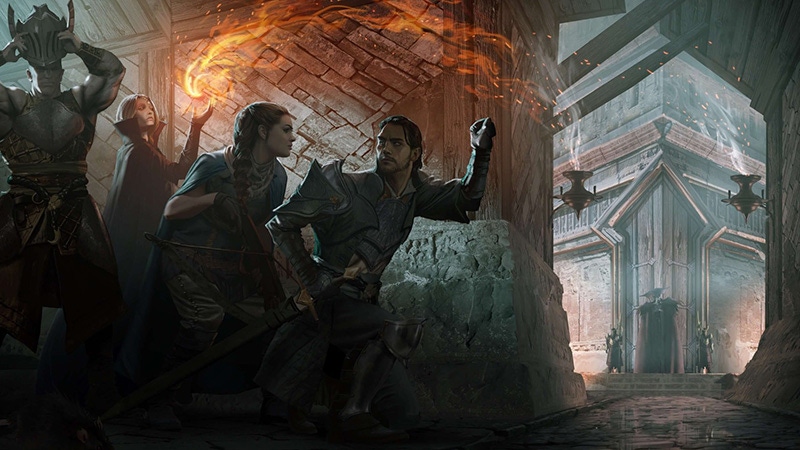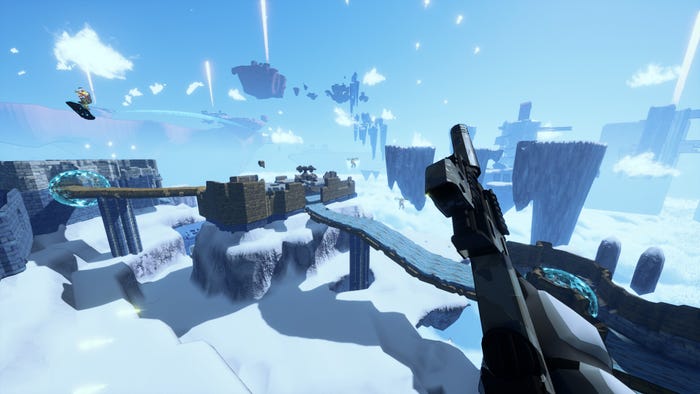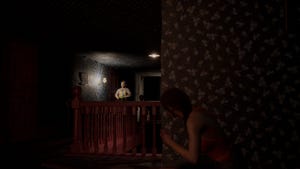Exclusive: Laid-off Keywords union members set to strike outside of BioWare Edmonton
Update: EA and BioWare allegedly attempted to block members of Keywords Edmonton United from protesting outside of the company's office.

Former employees of Keywords Studios who unionized under the banner of Keywords Edmonton United are planning to strike outside of BioWare's Edmonton headquarters on November 7, beginning around 11AM to 12PM local time. The striking union members—who had previously been working on Dragon Age: Dreadwolf before BioWare ended its contract with their employer—are protesting what they describe as an unfair termination by Keywords that they say was motivated by their unionization efforts.
The union is continuing to contest the workers' terminations and argue that they be re-instated as Keywords employees who can be contracted to work with other Canadian clients.
News of Keywords Edmonton United's strike comes with an additional twist: according to the union, Electronic Arts and BioWare appealed to the Alberta Labour Relations Board to block picketing from taking place outside EA's offices.
The corporation behind the Dragon Age and Mass Effect franchises argued that this strike was a dispute between the laid-off workers and Keywords, and that they were not legally entitled to protest outside of BioWare because they had been a remote workforce.
The Board has since ruled in the union's favor, and the former Dragon Age: Dreadwolf QA testers are set to strike as planned. An EA spokesperson told Game Developer that the company still holds that BioWare's Epcor Tower headquarters "has never been a place of employment for Keywords employees," and stated any activity targeting the building was "misguided."
"We hope that Keywords and the union are able to resolve their differences but ultimately Bioware has no role in that process," they stated.
Union spokesperson James Russwurm praised the Board's decision, calling it a win for all remote workers across the country. "We view this Labour Board ruling as a huge win for not just us, but remote workers everywhere in Canada," he said. "Workers can now go 'oh, I can picket my employer's offices downtown even though I didn't work in the office.'"
The workers' planned strike and brief legal tussle with the company that contracted their former employer shine a light on the union's dispute with the prolific external development services provider. The union continues to assert that Keywords engaged in "bad-faith bargaining" during the process of negotiating a contract, and that their termination was a result of their successful unionization.
Their efforts also shine a light on the nuances of Canadian labor law, and showcase useful lessons for developers hoping to unionize across the globe.
EA and BioWare tried to prevent laid-off contractors from striking at their office
After members of Keywords Edmonton United unanimously voted in favor of calling a strike, the group filed a notice with the Alberta Labour Relations Board. Canadian law requires for unions to file notice with local labor boards in advance of such action.
Upon receiving word of the filing however, lawyers from EA and BioWare apparently objected to the decision to picket outside of BioWare HQ. In a hearing that took place November 2, they argued that the Board should require unionized workers to picket in another location—specifically outside their own homes.
A core element of EA's argument was that because the former Keywords workers worked entirely from home, the BioWare headquarters was not their place of work and they had no right to picket there. Alberta's Labour Relations board in Canada has oversight on what are called "secondary picketing" locations, which are locations that striking workers may attempt to protest at that are not their primary place of work.
The union successfully argued that BioWare's headquarters did represent their former workplace even though their members did not physically go into the office. Russwurm explained that union members began working with BioWare at the start of the COVID-19 pandemic, which prevented them from going into the office for at least a year.
When Keywords and BioWare attempted to force the contractors to return to the office, they began their efforts to unionize.
One reason the Board ruled in the union's favor was that like many remote workers in the world of game development, the former Keywords QA testers used special software to remotely access computers located inside of BioWare's office. "If the power goes out in the building, I couldn't do my work because the PC in the building would be turned off," Russwurm explained.
The Board has ruled that striking Keywords Edmonton United workers cannot block access or services to the building, which is also home to other companies besides BioWare. Russwurm said the union does not dispute that decision, and that their intent was never to prevent BioWare employees from accessing the premises.
He stated that BioWare employees arriving at the studio during the strike would not have to physically cross a picket line to enter the building. "We're going to be out there, getting the word out, and even talking to BioWare employees coming and out of the building that might be interested in unionization. That's more of our focus than actual disruption."
Russwurm said he maintains that the video game industry as a whole needs more unionization "across the board," and particularly that his former colleagues at BioWare should have a particular interest in unionizing after this year's brutal layoffs. "They can look around say 'we've had like two rounds of cuts now—[they're] cutting people who have been here for decades.' What kind of job protection do you have?"
Game Developer has reached out to Keywords Studios and Electronic Arts, and will update this story when said companies respond.
Update 11/7: This story has been updated with additional comment from Electronic Arts.
About the Author
You May Also Like









